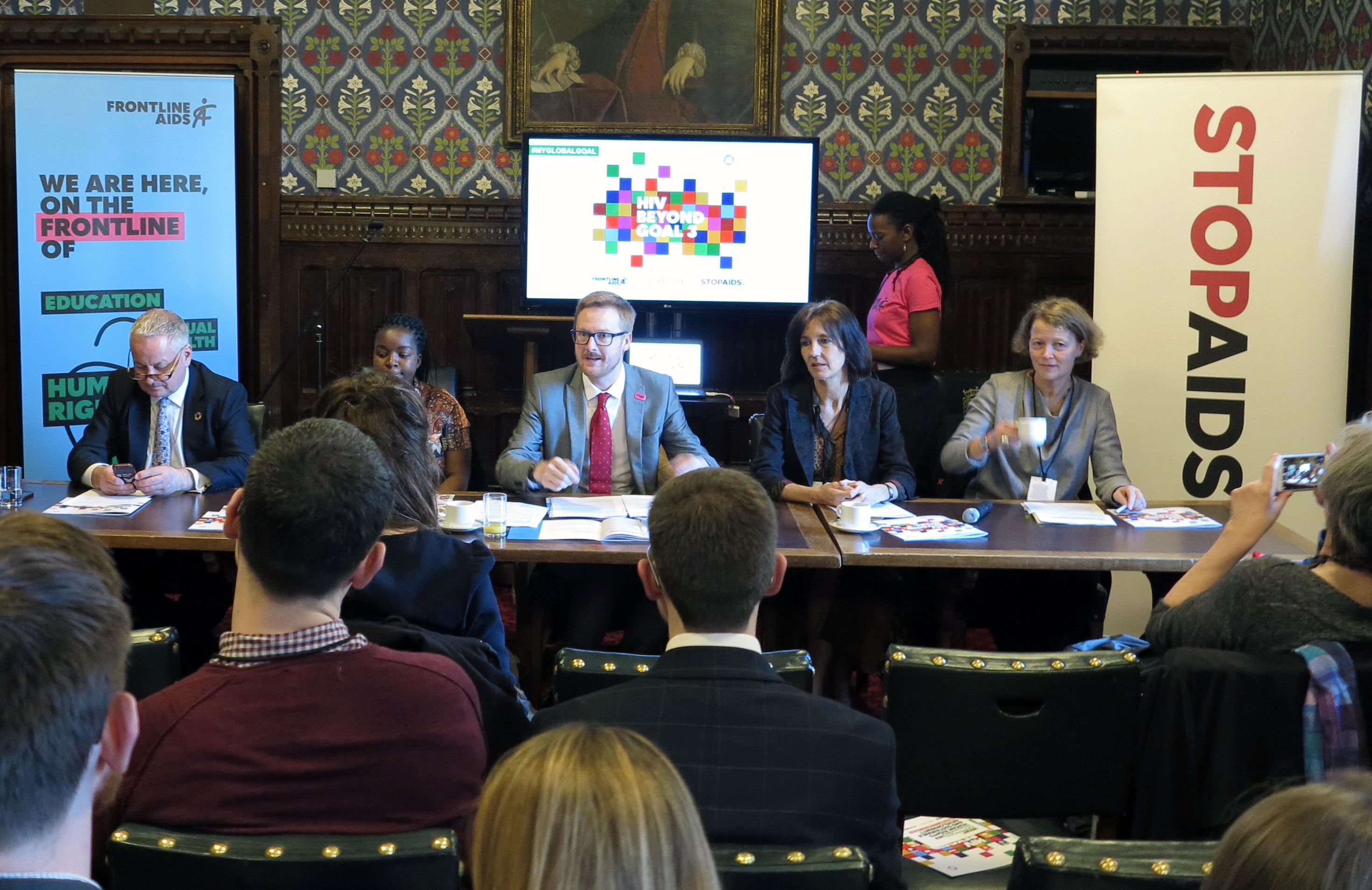HIV/AIDS is not just a global health issue but feeds into gender equality, human rights, economic empowerment and education. Viewing the SDGs as a platform from which the barriers to ending AIDS can be overcome by linking them to these wider issues is critical.

This was the topic of discussion at a parliamentary event ‘HIV Beyond Goal 3: Interconnections between HIV, human rights and sustainable development’ at which IDS Director Melissa Leach spoke. The event was hosted by STOPAIDS, STRIVE, and Frontline AIDS who were launching a ground-breaking report on the interconnections between HIV, human rights and sustainable development. The report looks at why a fresh approach to HIV/AIDS, that moves beyond a medical model, is needed if we are going to be able to respond effectively to this ongoing crisis.
A groundbreaking new report
The aim of this new report is to provide a quick reference guide on the linkages between HIV and multiple other SDG targets that every member state at the United Nations is due to report on in the coming months. The United Kingdom will submit its voluntary national review of how it has implemented the SDGs at the High-Level Political Forum in July 2019. It is hoped that the publication will help governments take a more holistic approach to HIV, as well as improve their reporting on the implementation of the sustainable development goals, in 2019 and beyond.
Almost a million people die every year from AIDS-related illness and although it may have disappeared from the headlines the crisis is far from over. A recent UN report recognised the fact that global AIDS response is off track.
Commitments made by member states to meet their SDG targets, including ones around HIV/AIDS, are voluntary as the SDG framework is not legally binding. Enforcement of these commitments could be strengthened through legally binding international human rights law. So for example, as the report highlights, Article 12 of the International Covenant on Economic, Social and Cultural Rights that recognises “the right of everyone to the enjoyment of the highest attainable standard of physical and mental health” could be used to hold governments to account around HIV/AIDS commitments.
How are the most marginalised being failed
The central ambition of the SDGs to ‘leave no one behind’, is highly relevant to HIV response where, in many countries, the most marginalised groups who are most likely to acquire HIV, such as sex workers, people who use drugs, men who have sex with men and transgender persons are being failed. It is also vital that these marginalised people are properly represented in these discussions that have such a huge impact upon their lives.
During the panel discussion Melissa Leach spoke about vulnerable groups such as young girls and LGBTQ+ persons who have often been neglected while trying to tackle the HIV crisis. It is important to acknowledge and build a space for civil society and participation from local, vulnerable and discriminated against groups if there is to be any meaningful SDG traction.
It is well documented the stigma and discrimination that many people around the world still face. Lloyd Russell-Moyle MP pointed to the role the American evangelical right has played in influencing attitudes in various African countries towards LGBTQ+ people, contraception and those living with HIV/AIDS. While it is hoped that scientific and anthropological research will influence how UN member states tackle this worldwide epidemic, it is also important to recognise that broader, often external, ideological and religious attitudes are having an ongoing influence over how the HIV/AIDS crisis is approached.

